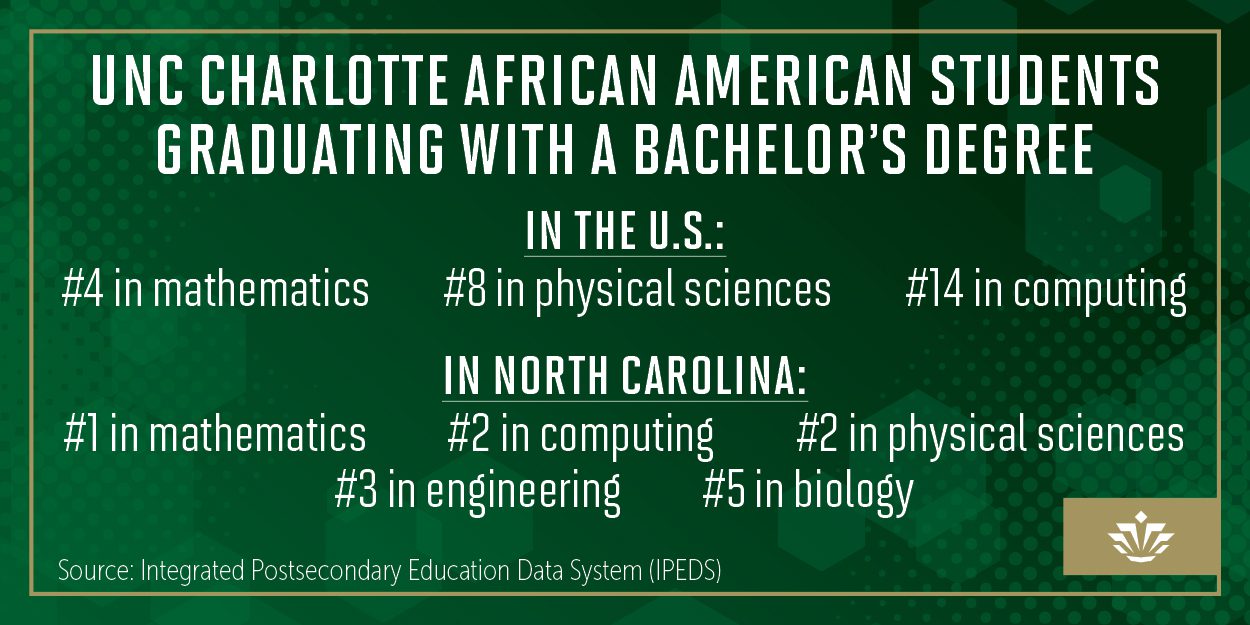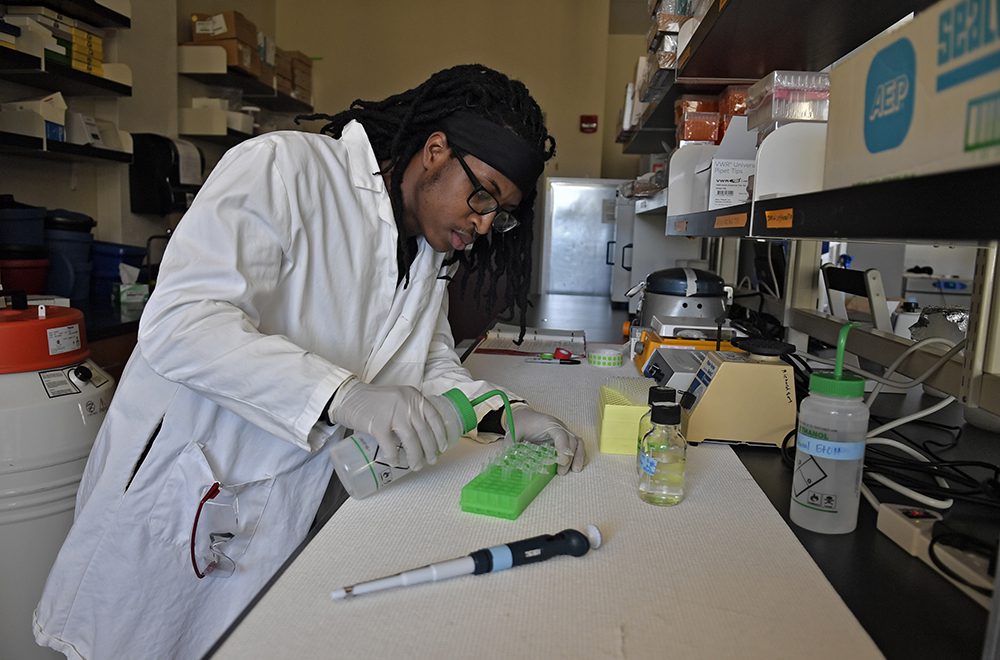Leading in degree completion

Leading in STEM
At UNC Charlotte, African American students are graduating at a rate higher than any time in the University’s history. At the same time, their success in STEM majors (Science, Technology, Engineering and Mathematics) is ensuring that they are starting their careers prepared to succeed in dynamic, 21st-century work environments.
With 70% of UNC Charlotte graduates remaining in the region when they’re ready to enter the workforce — and Charlotte designated as the U.S. city leading the creation of STEM positions — a winning combination exists for students to enter a pathway to rewarding, leading-edge careers and for the University and alumni to make an impact on the Charlotte business community.

Behind the Numbers
This symbiotic relationship is attributable to UNC Charlotte’s rising graduation rates both overall and for identified groups. Between the entering freshman classes for fall 2010 and fall 2014, UNC Charlotte’s six-year graduation rate jumped from 56.8% to nearly 65.1%, slightly outpacing the 63.4% graduation rate nationally. These gains earned national recognition from the Association of Public and Land-grant Universities.
Across the same timespan, the graduation rate among UNC Charlotte’s African American students rose by approximately 15 percentage points to 68.5%, significantly higher than the national six-year rate of 44.3%. By 2019-20, that landed the University at no. 18 for baccalaureate awards to African American students.

Jonese Pipkin ’20 plans to put her degree in environmental science to work by giving a voice to those unfairly impacted by environmental injustice.
Setting up Success
“Our aim is to provide access while supporting the opportunity for excellence for all students, particularly if they are the first in their families to go to college,” said Joan F. Lorden, provost and vice chancellor for Academic Affairs. “At UNC Charlotte that is more than talk; systems are in place to help students navigate not only the academic and financial aspects of their higher education experience but those that help them keep an eye on their futures.”
Success at this level isn’t an accident. Over the past two decades, UNC Charlotte has implemented data-based programs designed to provide students who come from underrepresented backgrounds the support they need to succeed. While the programs range in purpose and length, together they form a coordinated web of support that begins before new students arrive for their first year on campus, continues through orientation and the selection of majors and career paths, and is available until degree completion.
Read more: UNC Charlotte leads the state in awarding degrees to Latinx students.

Third-year biology major DeAndre Guyton, fueled by his passion to serve others, has his sights on medical school following graduation.
enhancing Social Mobility
In an interview last fall with Charlotte Agenda (now Axios Charlotte), Chancellor Sharon L. Gaber outlined the way higher education — particularly through degree programs that reflect cultural and marketplace realities — holds the key for providing opportunity for social mobility. Gaber emphasized that with first-generation college students comprising approximately one-third of freshmen students, there exists opportunity for our students to change their lives as they make an impact on the region. She stated, “We continue to evolve our interdisciplinary programs to ensure we are developing highly skilled leaders that will shape the future workforce.”